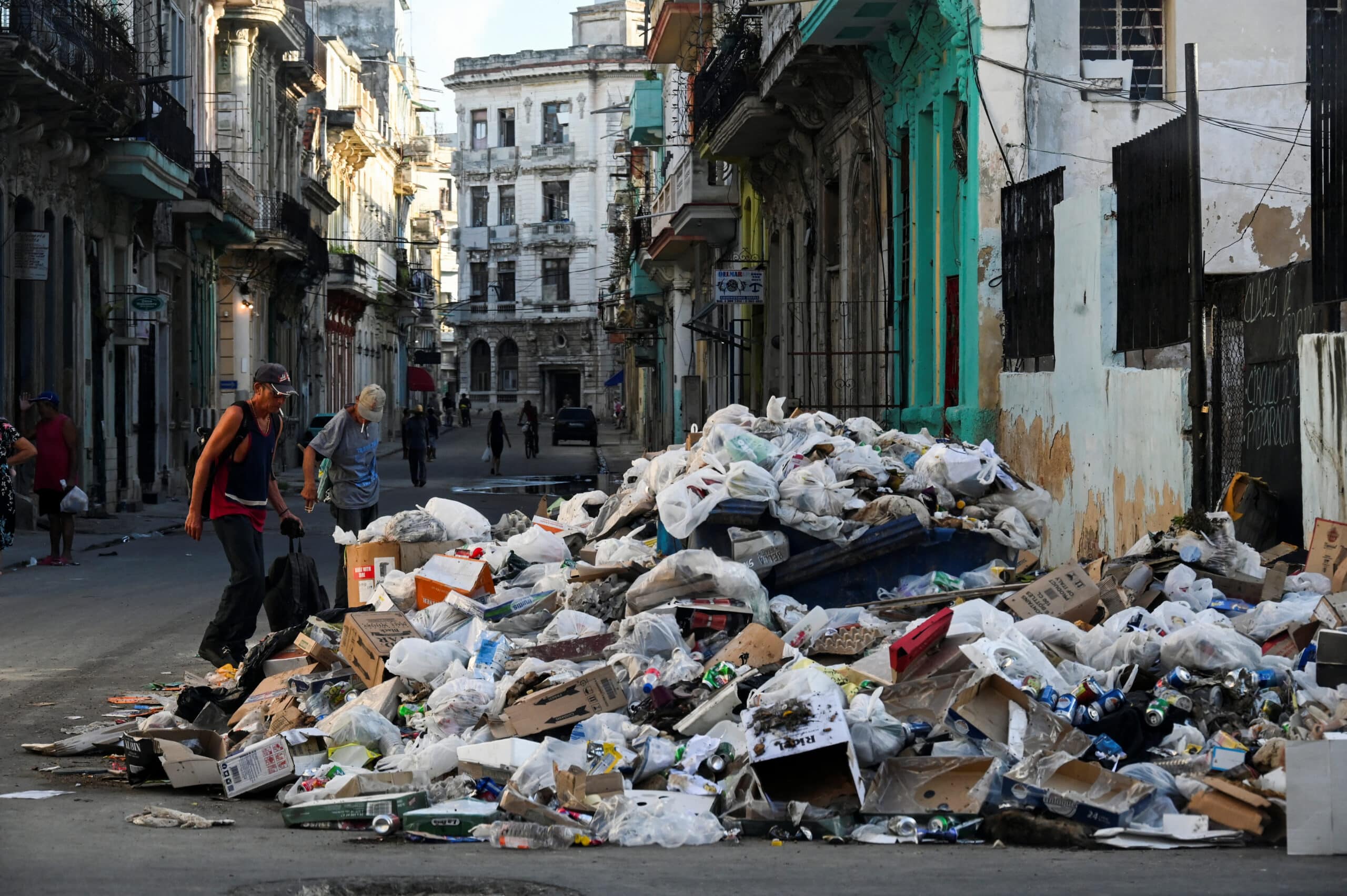
[ad_1]

Garbage is seen piled up on a street in Havana, August 23, 2024. More than 30,000 cubic metres of garbage is piling up in Havana every day, 7,000 more than a year ago, official data show. The mountains of solid waste mixed with organic residues give off a foul stench and attract swarms of flies in some corners of the central city of Cerro. In summer, the city’s beaches, where city residents go to escape the heat, are often littered with cans and plastic. AFP
HAVANA — Cuba’s iconic capital, Havana, is drowning in uncollected trash as sanctions and economic woes paralyze garbage collection on the island, creating severe shortages of fuel and auto parts.
Mountains of garbage piled up on the streets give off a foul stench and attract swarms of flies in several parts of the city of 2.1 million people, which has three open-air landfills.
Due to a lack of trash cans, residents threw garbage bags on the street, exacerbating the stench from overflowing sewage pipes.
read: Havana’s roads change as Cubans take to electric bikes and cars
“My kitchen faces the garbage dump,” housewife Lissette Valle, 40, told AFP.
“We have to keep everything covered. Otherwise, we’ll end up eating flies, mosquitoes…”
Official figures show that more than 30,000 cubic meters (about 1,000 20-foot containers) of garbage accumulate on Havana’s streets every day.
A year ago, that number was less than a third of what it is now.
read: Cubans reluctantly accept rising oil prices
According to the provincial Municipal Services Bureau, the capital has just over half of the garbage collection equipment needed, with a total of 100 garbage trucks.
But the Japanese-donated vehicles began to break down last year.
The communist country is unable to obtain the parts it needs to repair its fleet of dilapidated trucks due to US sanctions, local authorities told state mouthpiece Granma.
In addition, Cuba has been facing fuel shortages since 2023.
“The fuel problem hits us hard,” municipal official Miguel Gutierrez Lara told Granma newspaper, also lamenting a shortage of workers in the sector due to low wages.
“We expose ourselves to germs for a minimum monthly wage equivalent to $17,” complained a 30-year-old garbage collector who asked not to be named.
He said he didn’t even have gloves to work with.
The city is “full of little dumps,” the garbage collector said as he pushed a rickety trash truck.
Health inspector Jesus Jiminez told AFP the problem “has become uncontrollable” with mosquitoes and other carriers of diseases such as dengue and Oropouche fever spreading freely.
‘Lots’ of garbage
The situation in Cuba’s tourist waters is not much better.
At Guanabo Beach outside the capital, Rainier Fuentes emerged from the crystalline surf, diving fins clutched in one hand and rusty tin cans and assorted trash in the other.
“There are companies that clean the beaches… but there are no companies that clean the ocean,” said Fuentes, president of a nongovernmental organization that clears trash from the coastal seabed.
Havana’s natural resources chief Solveig Rodríguez acknowledged that the “huge” accumulation of metal waste on beaches posed a major challenge.
For Dulce Burgo, president of the Cuban National Commission for UNESCO, part of the solution lies in increasing individual responsibility.
“If you come to the beach with four bags, you should take all four bags with you when you leave – even if the fourth bag is full of rubbish. And that rubbish should never be left on the beach,” she said.
[ad_2]
Source link


